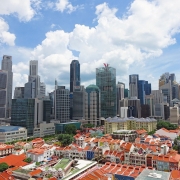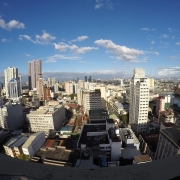What is industrialisation?
Topic of Study [For H2 History Students]:
Paper 2: Economic Development after Independence
Section B: Essay Writing
Theme II Chapter 1: Paths to Economic Development
Historical Context: Why governments pursued industrialisation?
After the end of World War II, many Southeast Asian economies were severely damaged. These countries lost their physical infrastructure and were in dire need of immediate post-war recovery. In Philippines, nearly fourth-fifths of its infrastructure in Manila was wiped out by the war.
Additionally, the adverse consequences of the Japanese Occupation could be observed in the conversion of industries to support the war efforts of these adversaries. In Burma, the Japanese restructured its economy and caused severe famine. After the war, rice exports fell to 500,000 tons in 1950.
In view of these significant challenges, the governments in Southeast Asian states embarked on industrialisation.
1. Modernisation of the agricultural sector
For countries that had agrarian economies, industrialisation was carried out to raise production. Governments established state agencies and provided substantial funding to support producers in the agricultural sector.
In Malaysia, the Federal Land Development Authority (FELDA) [Lembaga Kemajuan Tanah Persekutuan] was established on 1 July 1956 under the Land Development Act. Its purpose was to support resettlement for the local families that had land with substantial oil palm or rubber.
In addition, FELDA received loans from the World Bank to finance infrastructural development. In particular, the Malaysian government supported the construction of roads, farms and water supply access.
2. Import-substitution industrialisation (ISI)
At the initial stages of economic development, many governments implemented ISI to nurture domestic firms. Their intent was to kick-start industrial production to grow the local economy rapidly.
In Singapore, the government reviewed the Winsemius Report that highlighted the importance of state-guided industrialisation. In 1959, the Pioneer Industries Ordinance was passed to grant exemptions from company tax for five years.
Furthermore, the Economic Development Board (EDB) was formed on 1 August 1961. Under the guidance of then Minister for Finance Dr Goh Keng Swee, the EDB would “plan, coordinate and direct” the industrialisation process.
3. Export-oriented industrialisation (EOI)
Yet, the emphasis on ISI was inadequate to sustain economic development in Southeast Asian states. Therefore, governments shifted their focus towards EOI.
As the global economy became more inter-connected due to the liberalisation of world trade, countries in Southeast Asia began to promote international trade.
In Indonesia, Suharto’s government signed the General Agreement on Tariffs and Trade (GATT), thus admitting the country as a member of GATT in March 1985. Also, the government reduced its tax rate and eased trade regulations.
Coupled with the process of financial liberalisation, the Indonesian government was successful in enabling the large inflows of foreign investment by the early 1990s.
What can we learn from this article?
Consider the following question:
– How far do you agree with the view that industrialisation was most important in shaping the economic development of independent Southeast Asian states [to be discussed in class]?
Join our JC History Tuition and find out how you can organise your content materials. We provide summary notes, essay outlines and source-based case study practices. Our exam-driven classes feature the refinement of reading and writing skills through the review of past examination questions. These programmes are offered to JC1 and JC2 students taking either H1 or H2 History.
The H2 and H1 History Tuition feature online discussion and writing practices to enhance your knowledge application skills. Get useful study notes and clarify your doubts on the subject with the tutor. You can also follow our Telegram Channel to get useful updates.
We have other JC tuition classes, such as JC Math Tuition and JC Chemistry Tuition. For Secondary Tuition, we provide Secondary English Tuition, Secondary Math tuition, Secondary Chemistry Tuition, Social Studies Tuition, Geography, History Tuition and Secondary Economics Tuition. For Primary Tuition, we have Primary English, Math and Science Tuition. Call 9658 5789 to find out more.











